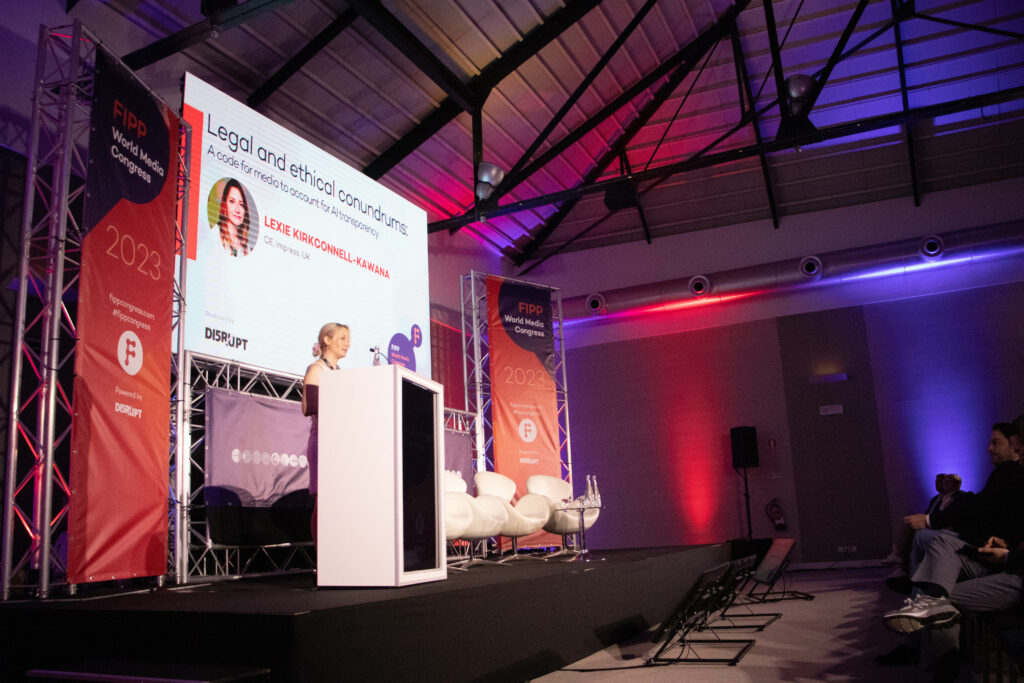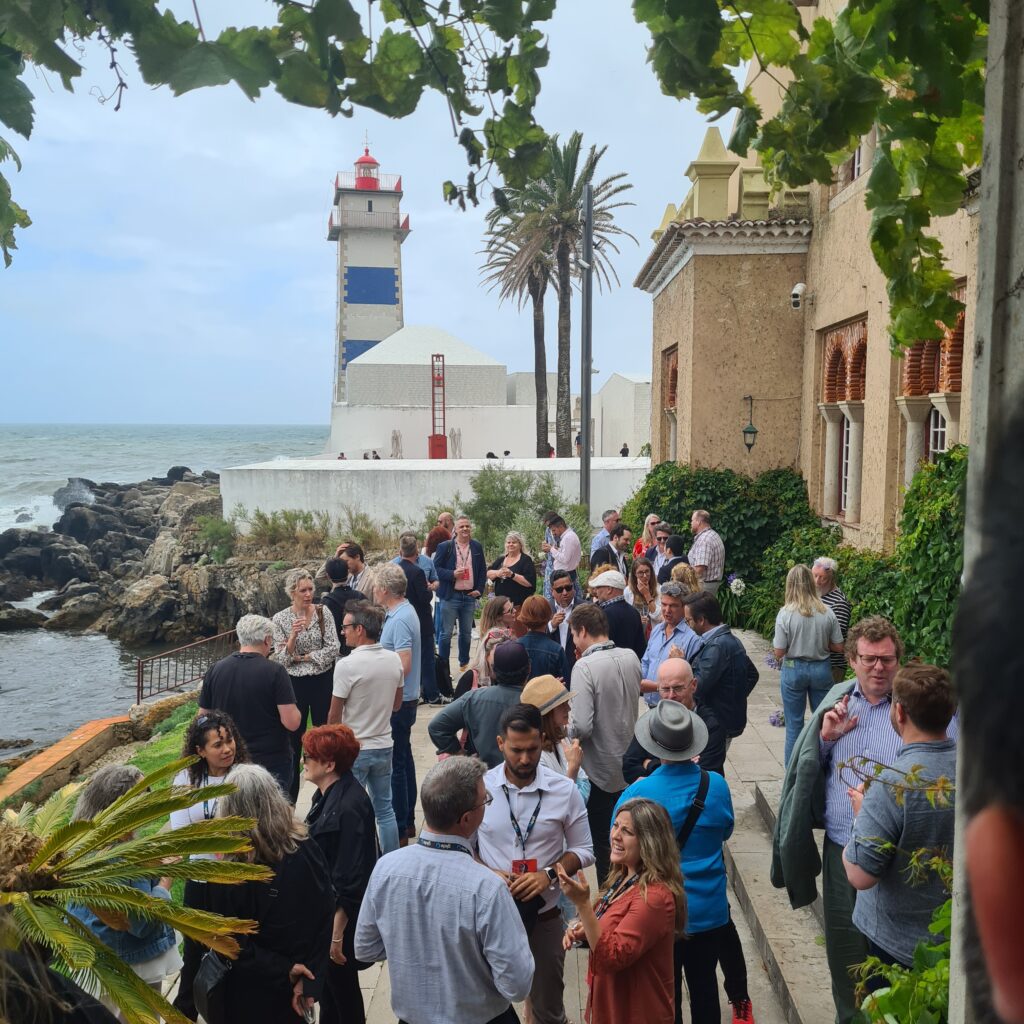Three years ago, James Rosewell called Google’s Privacy Sandbox “a plan worthy of a Bond villain”. James, who co-founded the Movement for an Open Web (MOW), has since maintained that Google’s proposals are not fit for purpose and warns that a dark future awaits if we don’t protect the open web from overzealous corporate control.

Media in democratic societies across the globe is in the midst of an existential crisis. On one level, the most powerful brands are either making deals or suing technology companies to ensure they are compensated for how the latter purloins their content.
At the same time, smaller media companies – many focused on regions – face ever trickier futures where their main revenue source, advertising, continues to dwindle. The many attempts to stem the tide invariably lead to more intrusive advertising on web pages, which impacts the user experience, potentially losing readers in the long term.
It’s a discussion that is central to recently launched non-profit organisation Movement for an Open Web (MOW), which is campaigning for an open web not controlled by private companies’ technology or restricted by their terms and conditions. In other words, a web that enables companies to flourish where Google, Apple, and their Silicon Valley allies don’t set the rules.
The organisation’s face and Co-Founder, James Rosewell, has noted that there seems to be a degree of fatalism among media companies. At its heart is a shift by Google and Apple to reinvent online advertising, a recalibration unlikely to lead to a growth in online display advertising revenues for media companies.
Systems built around third-party cookies have served media companies reasonably well until recently, but as everyone knows, Google plans to phase out third-party cookies and replace them with a system that silos interests. In theory, Google Privacy Sandbox will go live at some point in 2024.
Reining in Google’s power
James sees Google’s approach as anathema to his vision of an open web. In fact, three years ago he called Privacy Sandbox “a plan worthy of a Bond villain”.
“So Google talks about a privacy sandbox, and they say it’s open. It’s like it’s a proprietary API. But because no one else is implementing it, it’s open in name only. And it’s so bad that in an open market, no one would use it. The only reason people are paying any attention is because it’s got Google’s name attached to it.”
The project has been referred to the UK’s Competition and Markets Authority CMA, which will rule on Google’s approach in July this year. The referral to the CMA marked the end of phase one of MOW’s work. The organisation was set up in 2021 as a response to the initial plans that Google had unveiled.
“We wrote a letter explaining the problem that my company, a small B2B business in the UK tech sector, would have with Google’s proposals,” James explains. “And then, through that process, I met Tim Cowen, who is an ex-Competition Appeal Tribunal judge who has worked on matters such as the Google Shopping case. So we started chatting, and basically the conversation was, ‘What happens if the CMA finds there’s a problem in the market, which we expect they will do?’ “
After the CMA published their report in July 2021, James and Tim met with them, asking what the next step was. The CMA said they couldn’t act without a complaint.
“So we said, ‘Well, what if we form a not-for-profit business to raise a complaint with you?’ And we got positive vibes because regulators like solutions like this because if victims don’t come forward to complain, they can’t do their job. So we set up a Movement for the Open Web as a UK nonprofit, limited by guarantee.”
Since those discussions, MOW has gained momentum, adding members from both the tech and media sectors. James emphasises it is imperative that members remain anonymous.
“A key feature of MOW is that we don’t disclose membership. The CMA and the competition regulators globally know who the members are, and they judge us based on our arguments, but we don’t make that public because, of course, the vehicle is designed to prevent discrimination, perceived or real.
“I think it proves the need for something like MOW, as some companies are too scared to publicly go up against Google. Google has excessive power, so they need to remain anonymous.
“It’s unusual, because even the trade bodies that would normally represent their members are compromised in doing so because of Google’s membership and that they pay the highest fee. I’ve had people say to me, ‘We can’t talk publicly about that. I’d have to cut projects if I lost Google’s input”. “
MOW has emerged as an association with a wider remit to protect the open web. But for now it focuses on rejecting the Google proposal and working with the industry on a replacement system that remains free and competitive while ensuring advertising continues to fund the media.
A global ruling?
One of the most interesting elements of the CMA intervention is that it may be a global yardstick for how Privacy Sandbox develops. If the UK CMA insists Google scrap the proposals, other regulatory bodies in other countries are likely to follow suit.
“I regularly now talk to Americans. In fact, I think I’ve talked to more Americans than Europeans on this subject,” adds James.
“And while the CMA is the regulator of choice effectively to handle this, that’s not to say that the other regulators are not also involved. The European Commission held a press conference that went completely unreported in late June of last year, where they talked about the statement of objections. They’re progressing in private with that. And then you’ve got the Department of Justice cases, and the state attorneys general in the United States.
“So, what I would like to happen is for one of those regulators to actually do what we originally asked for in September 2020, which is to use their interim measures powers to prevent Google from progressing Sandbox, i.e. freeze the status quo until the trials in the US, for example, or the Europeans Commission’s statement of check of objections process concludes. Because if you take the US case, it’s pretty well known that they are looking at Google’s dominance in the ad tech supply chain.”
Reimagining the future of media
James is optimistic that the CMA will rule against Google. He sees it as a chance for publishers and the advertising industry as a whole to reimagine their future.
“I think it’s very unlikely Google will be able to proceed as they currently plan to. I think that’s exceptionally frustrating, and the sooner that an injunction is put in place, the better. Then we can have a grown-up conversation about what a meaningful improvement of privacy would look like, and how we establish stable, guaranteed interoperability and technical standards.”
James says It doesn’t necessarily have to be a return to the previous era of third-party cookies either.
“When people say third-party cookies, I think what they mean is interoperability. So the ability for data to be exchanged
“We need to have the conditions so that there can be a proper debate about these things where people haven’t got the sword of Damocles of Google or Apple or whatever the latest issue is this quarter hanging over their heads. The point we would make is we don’t care whether it’s third-party cookies or something else. The important thing is whatever the something else is, that it’s not owned, created, controlled.”
James believes part of the discussions should be fuelled by that existential debate about the future of the media.
“Where are the new local journalists coming from? How do we get back to a point where you have multiple local news organisations and multiple journalists covering multiple local issues, and the money funding the media comes from the hairdressers, garages and estate agents?
“At the end of the day, the really simple thing with this is that at the moment, the platforms control 80-90% of advertising revenue. Other media companies can compete with them. If a more level playing field is enabled, media companies will be able to reclaim some of that revenue. That is good news for media companies.”
If we can create a world in which they can compete effectively, James says, we can create a more balanced media ecosystem.
We’d like to extend a personal invitation to join us for an unforgettable experience at the FIPP World Media Congress 2024, taking place from June 4-6 in the picturesque seaside town of Cascais, adjacent to Lisbon, Portugal. View the full agenda here.






